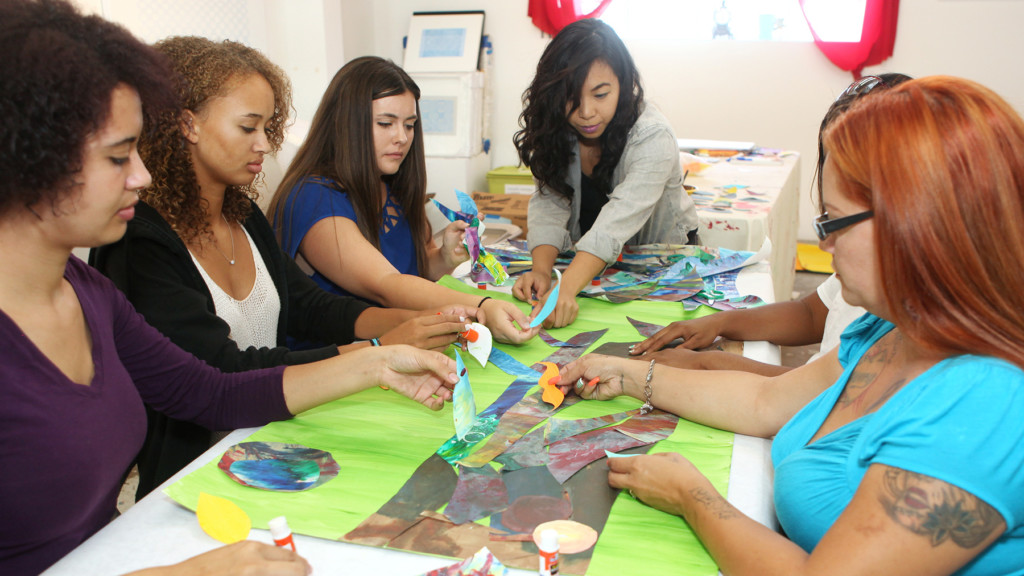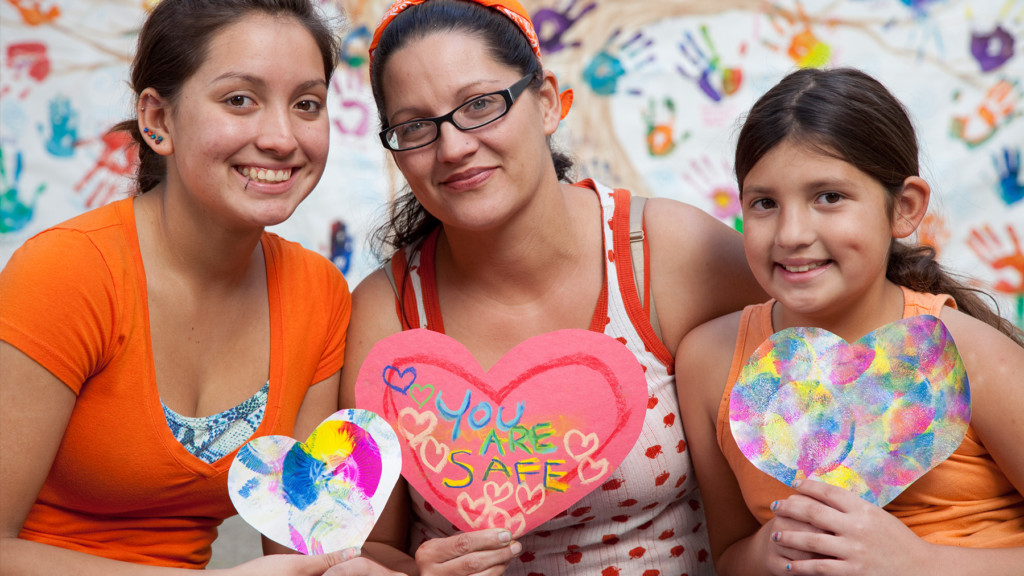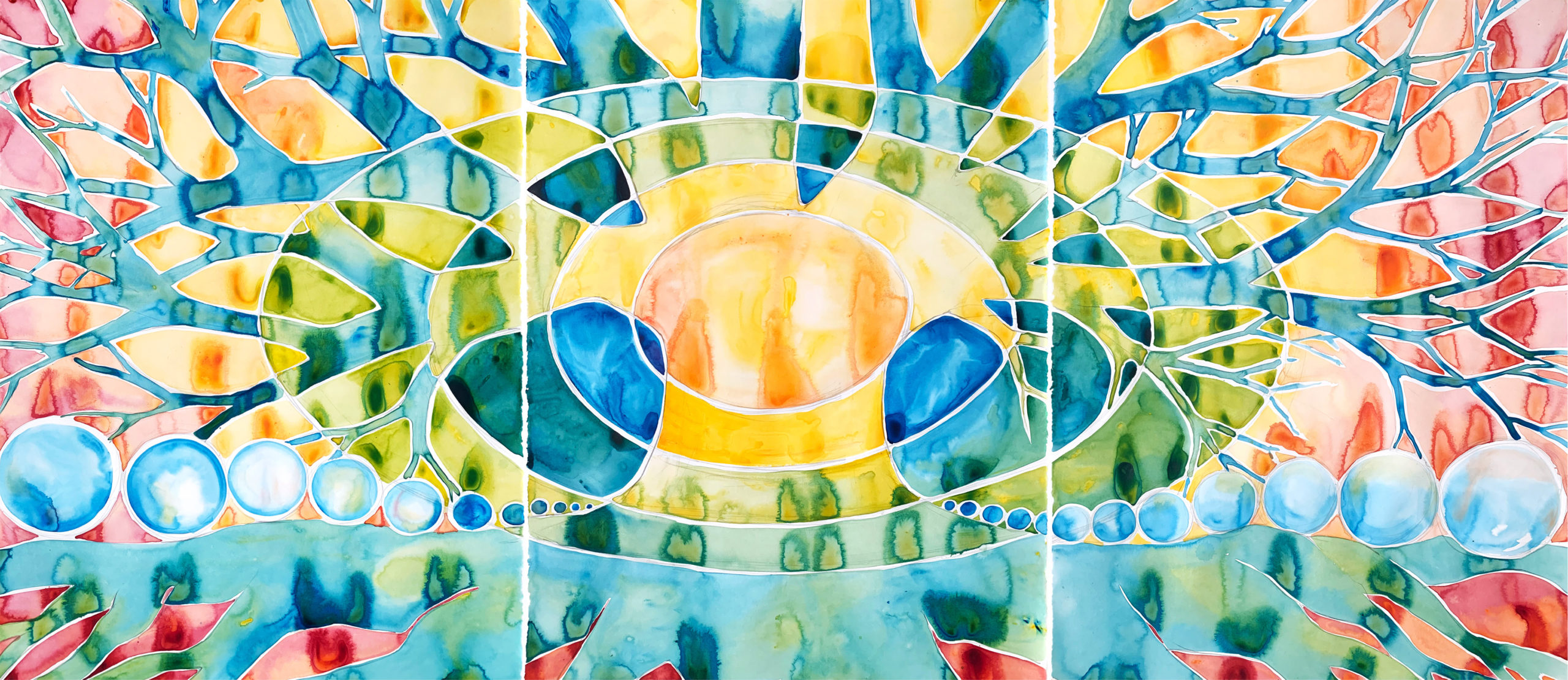Initiative 1: Uplifting Voices
For years, the trained facilitators within our Community of Practice (CoP) have been the core of our strength and the source of our innovation. In 2021, AWBW is committed to financially invest in them as leaders and artists, uplifting their lived experience as a foundation for future growth.
As a consistent practice reflective of our values as an organization, facilitators creating or leading workshops will receive financial compensation for their time and insight. That support won’t just honor and promote their ingenuity — it will help cultivate leadership within the CoP and preserve the longevity of AWBW itself.
Additionally, as our 1,000+ facilitators are empowered to innovate alongside one another, their collective creativity will enable the entire CoP to grow — and to respond to new challenges in the years ahead. As the reach of AWBW expands, it is crucial the diversity of leadership within the CoP expands to more accurately reflect a range of marginalized communities across this country.

Action Items:
-
- Cultivate leadership & co-facilitation opportunities — compensate Windows Facilitators and showcasing the diversity of lived experience within our CoP. Facilitators will be encouraged to moderate sector-specific affinity groups, create new workshops, and enjoy fresh opportunities for interpersonal engagement.
- Facilitator spotlight videos — celebrate their breadth of lived and professional experience while reflecting AWBW’s impact on their communities. Each video will be designed to forge deeper connections between AWBW, community stakeholders, and the work they support.
- Peer-to-peer check-ins — empower facilitators to mentor and guide one another, ultimately expanding the capacity of AWBW beyond its internal staff, and generating development opportunities for our growing community
- Program leadership groups— form affinity communities and enabling specialized, sector-oriented sounding boards to respond to unique challenges and opportunities — each based on specific feedback from facilitators serving those communities
- Virtual art and resource gallery — offer an accessible virtual space where facilitators can upload the artwork, testimonials, and stories of participants — all organized so funders and potential program partners can easily find subjects of personal interest

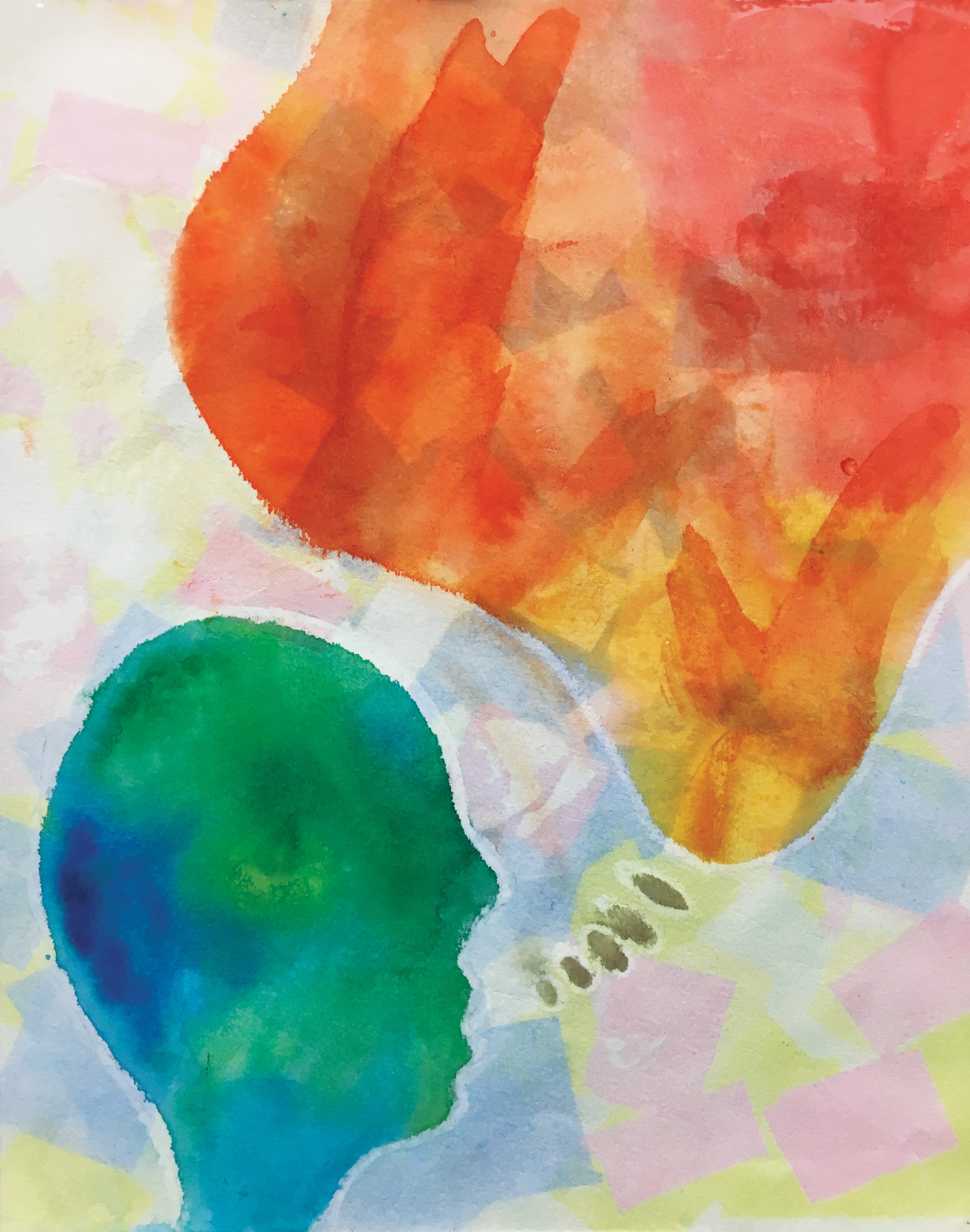
"Raising My Voice" by Youth Art Workshop Participant
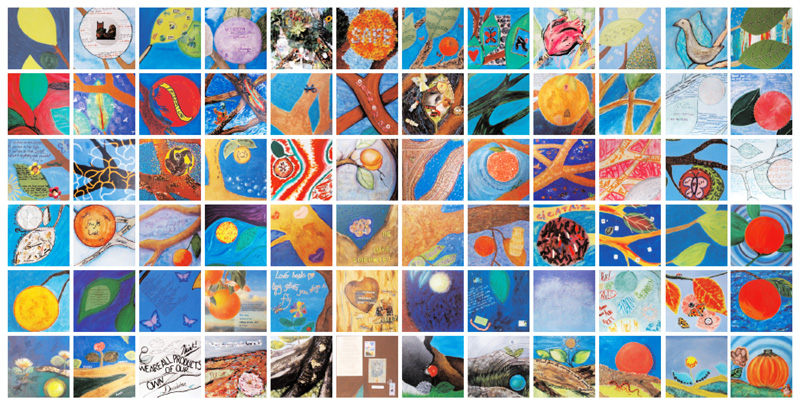
AWBW Community Story Tree, 2006
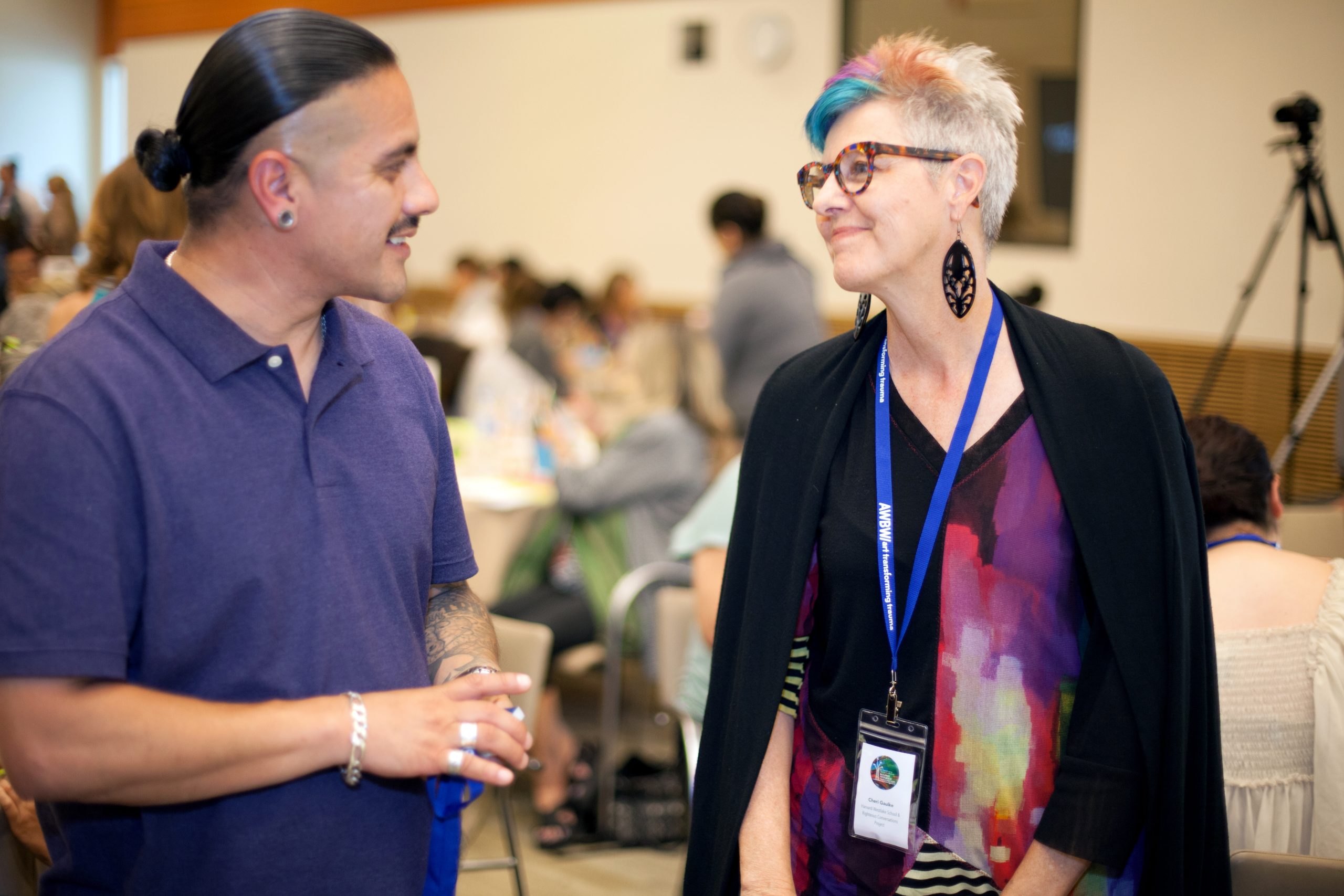
AWBW’s Art Transforming Trauma Conference, 2016
Facilitator Stories:
Highlighting Impact & Transformation
The videos below highlight unique perspectives from our national network of Windows Facilitators. We invite you to hear their stories and insights and reflect on their unique approaches to using art for healing and transformation.
Eva Latapi-Silva
Clinical Psychologist, Mexico
Eva tells the story of 130 women participating in AWBW’s “Messages of the Heart” workshop. Through this experience, they found empowerment and connection in new ways.
Nikki Crow
Prevention and Aftercare Care Coordinator, United American Indian Involvement (UAII)
In this video, Nikki shares how the AWBW art workshop “Journey Footprints” honors our resilience and helped one of her participants gain his confidence back.
Jenny Barbosa
Prevention Specialist, WomenShelter of Long Beach (WSLB)
Jenny was first introduced to AWBW when she was young as a survivor of teen dating violence. Here she shares the story of a young boy who, through AWBW’s “My Safe Home” workshop, discovers that his voice matters and that he deserves to feel safe, loved, and respected.
Christopher Harriott, LMFT, PPS
Founder, The Healing Chariot Counseling Services
Here Christopher shares about his loss of safety, hope in humanity, and more following the death of George Floyd — along with how AWBW’s workshop “Riding the Grief Coaster” helped him start to heal.
Arzie Umali, MPA
Senior Assistant Director, Women’s Center at University of Missouri – Kansas City
As students return to school, it is essential to acknowledge the value of self-care. Through experiencing the Windows Program, the culture around self-care throughout the UMKC campus has shifted, where all departments are recognizing its importance for students, staff, and faculty alike.
Lucy Tschachtli
Domestic Violence Counselor, Children & Family Services, Buffalo, New York
Lucy has been a part of AWBW since the beginning, officially becoming a trained facilitator in 1993. Here she speaks about the power of art in advocacy work — how sharing survivor art when lobbying got legislators to pay attention to what advocates were fighting for, leading to change in laws and policies.
Stacia Kato
Founder, Proud Momma Bears & AWBW Board Chair
In this moving video celebrating Pride Month, Stacia shares about using her training as a Windows Facilitator in her journey as the mother of a transgender daughter, including creating art with fellow mothers of LGBTQ+ youth in the Asian American and Pacific Islander community.
Vivian Lee, LCSW
Director of Counseling Programs, Little Tokyo Service Center
A Windows Facilitator since 2009, Vivian shares the story of how a woman used creativity to process surviving domestic violence.
Sally Stevens, MSW, PPS
Psychiatric Social Worker, Los Angeles Unified School District
A Windows Facilitator since 2014, Sally shares how art is a tool for healing and destigmatizing mental health in schools, where trauma shows up as “smiling faces with broken hearts and unexplained symptoms and behaviors.”
Karen Gonzalez
Founder, Helping Hands Resource Center
A domestic violence and sexual abuse survivor herself, Karen experienced Windows workshops while living in a shelter before becoming a Facilitator in 2014. Here she shares the crucial role art has played in her and her daughter’s journey from victims to survivors.
Daniel Domaguin, LCSW
Behavioral Health Clinical Manager, California Rural Indian Health Board, Inc.
A Windows Facilitator since 2012, Daniel shares his experience engaging a Native American community affected by multiple suicides through AWBW’s I CAN WE CAN workshop.


